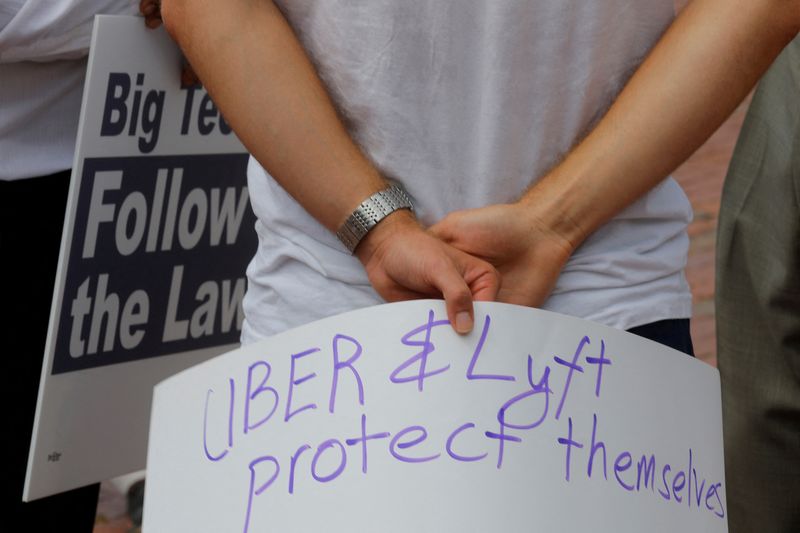By Daniel Wiessner
(Reuters) - A new Biden administration rule will likely prevent companies in a range of industries from treating some workers as independent contractors, who cost less than employees, and could create new legal headaches for app-based services that rely on gig workers.
But first, the U.S. Department of Labor rule, which takes effect March 11, will have to withstand expected court challenges by businesses and trade groups and the scrutiny of Republicans in Congress who will likely move to repeal it.
REVERSING TRUMP-ERA REGULATION
The rule unveiled on Tuesday adopts a test similar to the ones many courts have used for years to determine whether workers should be treated as independent contractors or employees under U.S. wage laws. The fact-based test looks at six main factors including the degree of control a company wields over a worker, whether work performed is integral to a company's business, and a worker's opportunity for profit or loss.
It replaces a Trump administration regulation favored by business groups that had made it easier to treat workers as contractors, who are not owed a minimum wage, overtime pay and other benefits reserved for employees. Studies suggest that employees can cost companies up to 30% more than contractors.
IMPACT BEYOND THE 'GIG ECONOMY'
The Labor Department has said that the rule is designed to clarify the standard for determining worker classification and crack down on low-paying industries where misclassification is common, including construction, healthcare, retail sales and security and janitorial services.
But much of the scrutiny of the rule has focused on its potential impact on the "gig economy," as app-based services rely heavily on contract labor to contain costs and gig work has become the main way that millions of Americans earn a living.
Companies including Uber Technologies (NYSE:UBER), Lyft (NASDAQ:LYFT) and DoorDash (NASDAQ:DASH) have said they do not expect the rule to result in their drivers and delivery workers being classified as employees. But it could spur a fresh round of lawsuits claiming app-based services are misclassifying workers as contractors, which the industry has already been battling for a decade.
LEGAL CHALLENGES
Business groups are widely expected to seek to block the rule in court, and the U.S. Chamber of Commerce, the largest U.S. business lobby, has already said it is considering a lawsuit. Individual businesses, freelancers and gig workers, and Republican-led states also could mount legal challenges.
Any lawsuit over the rule will likely attack both its merits and the Labor Department's process for adopting it, according to legal experts. Groups could argue that the rule's definition of who counts as an employee is too broad and violates federal wage law, and that it is so vague that compliance would be difficult.
At the same time, lawsuits could allege that the Labor Department failed to justify its sharp break from the Trump administration rule, as required by the federal law that governs rulemaking by agencies.
The Labor Department had previously moved to rescind the Trump-era regulation but a federal judge in Beaumont, Texas in 2022 agreed with business groups that the agency had not followed the proper administrative procedure. Trade groups and conservative lawyers have challenged many Biden administration regulations in Texas federal courts, and there is a good chance that lawsuits over the independent contractor rule could be brought in the state.
CONGRESSIONAL REVIEW
The federal Congressional Review Act gives Congress the ability to repeal agency rules within 60 days of their adoption, and business groups have said they will urge lawmakers to use that power to eliminate the Labor Department rule.

Senator Bill Cassidy, a Republican from Louisiana, said on Tuesday that he planned to introduce a resolution to repeal the rule. Any effort to do so will likely be backed by most Republicans and could pass the House of Representatives, where the party holds a slim majority.
But getting the measure through the Senate, where Democrats have a one-seat advantage, and mustering the two-thirds majority needed to overcome a likely veto from Democratic President Joe Biden would be a heavier lift.